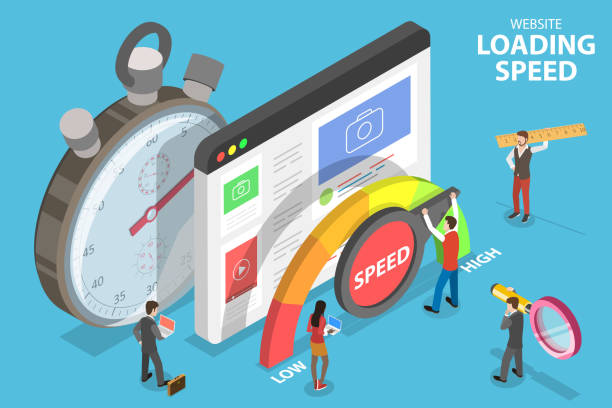Speed is everything—especially when it comes to your website. A slow-loading website not only frustrates users but can also have a significant impact on your search engine ranking. Google and other search engines prioritize user experience, and page speed is a major component of that. If your website takes too long to load, it could be pushed down in search results, making it harder for potential visitors to find you.
Why Website Speed Matters for SEO
Search engines like Google use algorithms that consider various factors to rank pages. One of those critical factors is page load time. According to Google, websites that load in more than 3 seconds have a high bounce rate—meaning users often leave before the page even loads. This signals to the search engine that your website may not provide a good user experience.
Here’s how speed influences your SEO performance:
1. Lower Bounce Rate
Users expect fast results. If your site loads slowly, they are likely to abandon it before even viewing your content. A high bounce rate negatively affects your rankings because it tells search engines that your content isn’t engaging or accessible enough.
2. Improved Crawl Efficiency
Search engine bots crawl websites to index their content. A faster website allows these bots to crawl more pages within a limited time, improving your visibility in search results.
3. Better Mobile Experience
Google follows mobile-first indexing, which means it primarily uses the mobile version of your site for ranking. Mobile users are often on slower connections, so a lightweight and fast-loading mobile site is crucial for better rankings.
How to Improve Website Speed
Boosting your site speed isn’t just about reducing image sizes or changing hosting providers. It requires a holistic approach that includes front-end optimization, backend improvements, and user-friendly tools. Here are some key strategies:
- Optimize Images: Use compressed image formats like WebP without compromising on quality.
- Enable Browser Caching: Store elements of your site on the user’s browser so they don’t have to reload everything on repeat visits.
- Use a Content Delivery Network (CDN): CDNs distribute your content across global servers, ensuring faster access for users regardless of location.
- Minimize Code: Remove unnecessary characters from your HTML, CSS, and JavaScript files.
Using WordPress Plugins for Speed Optimization
If you’re running your site on WordPress, you’re in luck. There are several powerful WordPress plugins available that can significantly boost your website speed. Plugins help in caching, image compression, lazy loading, and minimizing files—all of which contribute to faster load times and better SEO results.
Final Thoughts
Website speed isn’t just a technical concern—it’s a critical component of your search engine optimization strategy. A fast-loading website improves user experience, lowers bounce rates, and gives you a competitive edge in search rankings. By leveraging smart optimization practices and helpful tools like WordPress plugins, you can ensure your site performs well both for users and search engines.
In short, faster websites rank higher. So, if SEO is a priority for your business or blog, make website speed a top priority too.








Leave a Reply